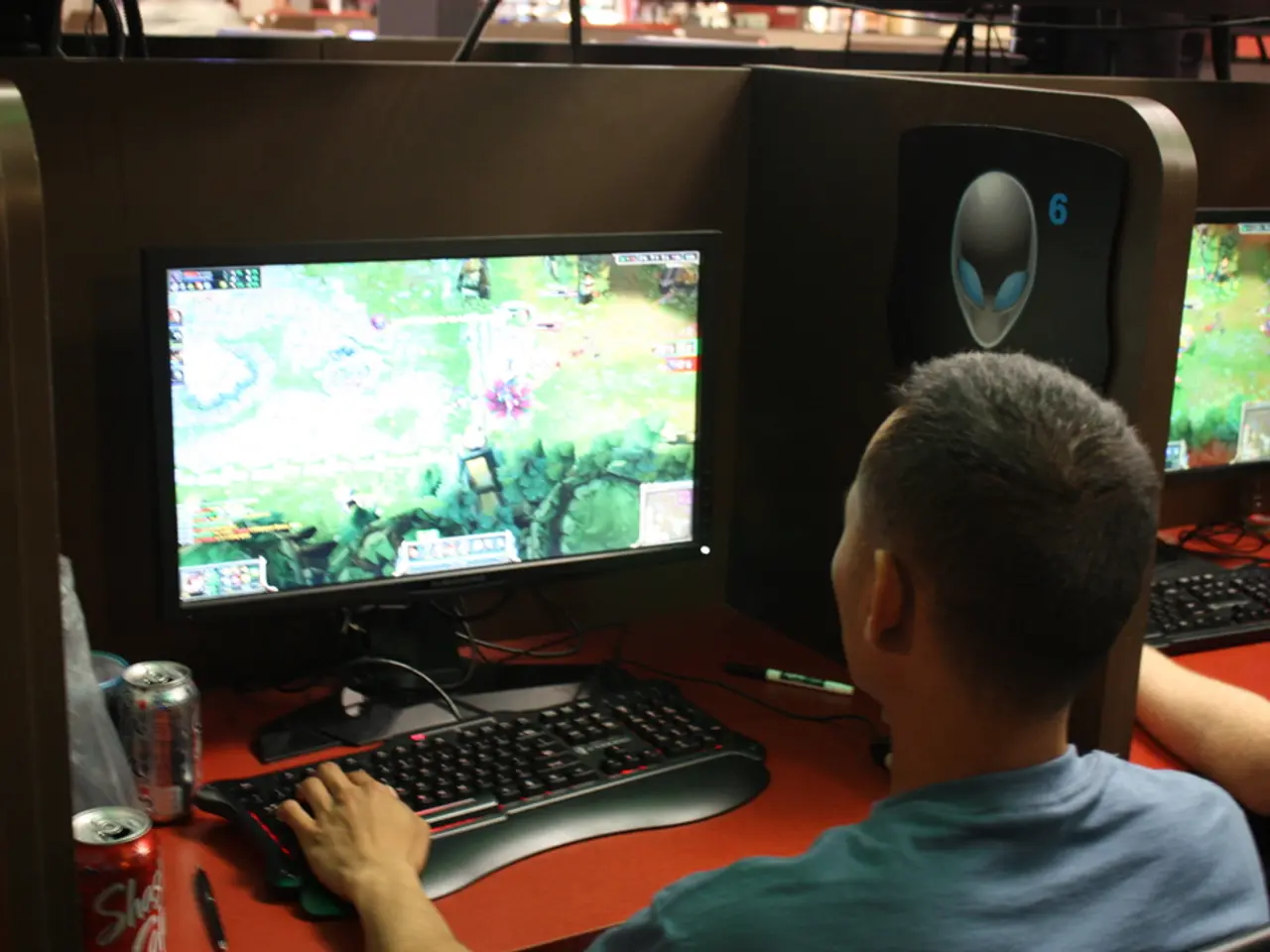Developers of Candy Crush dismissed following the AI responsible for their creation
In the world of gaming, a heated debate is brewing about the role of artificial intelligence (AI) in creative work and potential mass layoffs. This conversation has gained traction following the recent move by King Studios, the mobile gaming studio known for creating the popular game Candy Crush, to replace 200 employees with AI tools they developed internally [6].
The controversy surrounds the use of AI for automating roles traditionally filled by humans, such as level designers, writers, and UX specialists. This trend is part of a broader shift towards automation in the gaming industry, with King's move being just one example of a larger restructuring plan affecting 9,000 jobs in Microsoft's gaming division [1][4].
The debate centers on the tension between automation-driven efficiency and the human cost to workers. Critics argue that companies are deliberately using AI to eliminate routine jobs while heavily investing in AI talent, creating a stark divide between those building AI systems and those being displaced by them [1][4].
This tension is further exacerbated by the fact that such layoffs often happen despite strong revenue performances, leading to distrust between developers and publishers. Workers are pushing back through unionization efforts and calls for better labor practices [2]. For instance, the layoffs at Electronic Arts (EA) combined with aggressive AI adoption have become a flashpoint in the industry, highlighting fears that AI might replace human creativity rather than just augment it [2].
Microsoft and other major players have similarly laid off thousands of employees while investing heavily in AI, leading to criticism that these moves prioritize automation and shareholder value over workers’ livelihoods [1][3][5]. Some industry voices note the irony in encouraging laid-off workers to use AI for job searching after being let go due to AI-related efficiencies, which has sometimes been perceived as tone-deaf or insensitive [3].
The debate revolves around several key points:
- AI-driven layoffs as part of a strategic workforce transformation prioritizing automation and efficiency over job preservation [1][4].
- Distrust and backlash from workers and developers concerned about job security, creative integrity, and fair treatment [2].
- Industry contradictions where companies lay off workers but pay huge sums to AI researchers, underscoring a shift toward AI-powered production models [1].
- Ethical and social considerations about the future of creative work, unionization, and whether AI should have a role in replacing or just assisting human game developers [2][3].
As this conversation continues, it is shaping how the gaming industry approaches AI adoption and workforce management. King, for one, is exploring the potential of AI to increase efficiency and reduce costs in various aspects of game development and publishing [6]. The future of creative work in the gaming industry, it seems, will be shaped by this ongoing debate.
[1] https://www.theverge.com/2021/4/2/22365013/microsoft-layoffs-18000-jobs-gaming-division-xbox-game-studios [2] https://www.gamesindustry.biz/articles/2021-03-29-ea-layoffs-union-response [3] https://www.gamasutra.com/view/news/368443/EA_Layoffs_Spark_Debate_Over_AI_and_Job_Security [4] https://www.theguardian.com/technology/2020/dec/09/artificial-intelligence-job-losses-uk-workers-unions [5] https://www.theverge.com/2020/11/2/21527278/sony-interactive-entertainment-layoffs-150-employees-covid-19 [6] https://www.reuters.com/business/media-telecom/microsoft-owned-king-gaming-studio-replaces-200-employees-ai-tools-2021-03-04/
Technology and artificial intelligence are at the center of a contentious debate within the gaming industry. This dispute is revolving around the use of AI for automating human roles, such as level designers, writers, and UX specialists, which has potential implications for thousands of jobs [1][4]. The controversy stems from the tension between automation-driven efficiency and the human cost to workers, with critics arguing that companies are using AI to eliminate jobs while heavily investing in AI talent [1][4].




